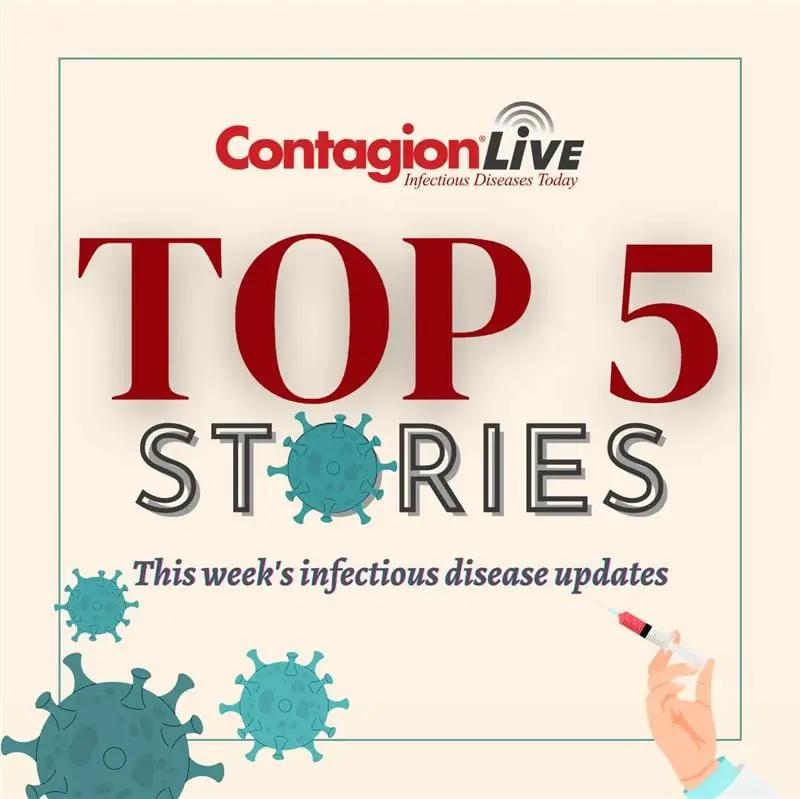Findings From Screening Study for Hepatitis B and Hepatitis D Demonstrate Need for Follow-Up Testing
On our podcast, Elizabeth Marlowe, PhD, D(ABMM), executive scientific director of infectious diseases at Quest Diagnostics, highlighted findings from the first US study screening for both hepatitis B (HBV) and hepatitis D (HDV) viruses concurrently. The study analyzed over 5,200 HB surface antigen–positive specimens and found that 2.2% were positive for HDV antibodies, with about 28% of those showing active infection via HDV RNA. Marlowe emphasized the need for universal reflex testing, where HBV-positive samples are automatically tested for HDV antibodies and RNA, to improve early detection and patient care. She also discussed the emerging “test and treat” approach, which aims to streamline diagnosis and treatment into a single visit, potentially reducing loss to follow-up and increasing access to care for patients with chronic hepatitis infections.
Merck’s MK-8527 Advances to Phase 3 for Once-Monthly HIV Prevention
At IAS 2025, Luisa M Stamm, MD, PhD, associate vice president of infectious disease clinical research at Merck, announced the launch of two global phase 3 trials, EXPrESSIVE-10 and EXPrESSIVE-11, for MK-8527, a once-monthly oral HIV preexposure prophylaxis (PrEP) candidate. Stamm explained that MK-8527 acts through a novel dual mechanism that inhibits viral replication with immediate and delayed chain termination, supporting monthly dosing due to its long intracellular half-life. The trials will enroll over 9,000 participants across multiple countries, focusing on populations with limited access to daily PrEP, using daily FTC/TDF as the comparator and integrating pharmacokinetic adherence assessments to better understand efficacy in real-world settings.
FDA Approves Prefilled Syringe Presentation of GSK’s Shingrix for Shingles Prevention
On June 17, 2025, the FDA approved a new prefilled syringe presentation of GSK’s recombinant zoster vaccine, Shingrix, for shingles prevention. This new format eliminates the need for manual reconstitution before administration, making it more convenient for healthcare providers while maintaining the vaccine’s original composition of glycoprotein E antigen and AS01B adjuvant. Since its initial US approval in 2017, Shingrix has been widely used to protect adults aged 50 and older, as well as immunocompromised individuals, from shingles, a painful condition caused by reactivation of the varicella-zoster virus. The approval of the prefilled syringe is expected to support broader access and ease of administration, aligning with GSK’s efforts to optimize vaccine delivery in aging and at-risk populations.
Study Results Find AMR Policy Messaging Misses the Mark With Agricultural Stakeholders
A recent policy analysis led by Carly Ching, PhD, a research scientist at Boston University, finds that current antimicrobial resistance (AMR) communication strategies targeting agriculture emphasize human health while underusing messaging that appeals directly to farmers’ self-interest, potentially limiting policy support and adoption. The study analyzed international policy documents from organizations like the FAO and WOAH, revealing differences in focus, FAO prioritizes food production and security, while WOAH emphasizes animal health and welfare, but both rarely use multi-motivational framing. Ching highlights the need for inclusive, context-specific language co-created with farmers and producers to build trust and relevance. She also stresses that future One Health AMR strategies should balance messaging across human, animal, and environmental health sectors, with clearer, more personally relevant frames tailored to local agricultural realities.
TAXIS Pharmaceuticals Earns FDA QIDP Designation for Its Efflux Pump Inhibitor for Pneumonia
TAXIS Pharmaceuticals received FDA qualified infectious disease product (QIDP) designation for its investigational efflux pump inhibitor, TXA14007, intended for use with levofloxacin to treat hospital-acquired and ventilator-associated pneumonia. This designation grants access to the FDA’s Fast Track program, priority review, and eligibility for a possible 5-year market exclusivity extension, accelerating the drug’s development and review. Preclinical studies show TXA14007 enhances levofloxacin’s effectiveness against drug-resistant Pseudomonas aeruginosa without toxicity. This is TAXIS’s second QIDP designation, with the first for TXA709, targeting resistant Staphylococcus aureus. The company aims to advance development through partnerships to address antimicrobial resistance.
